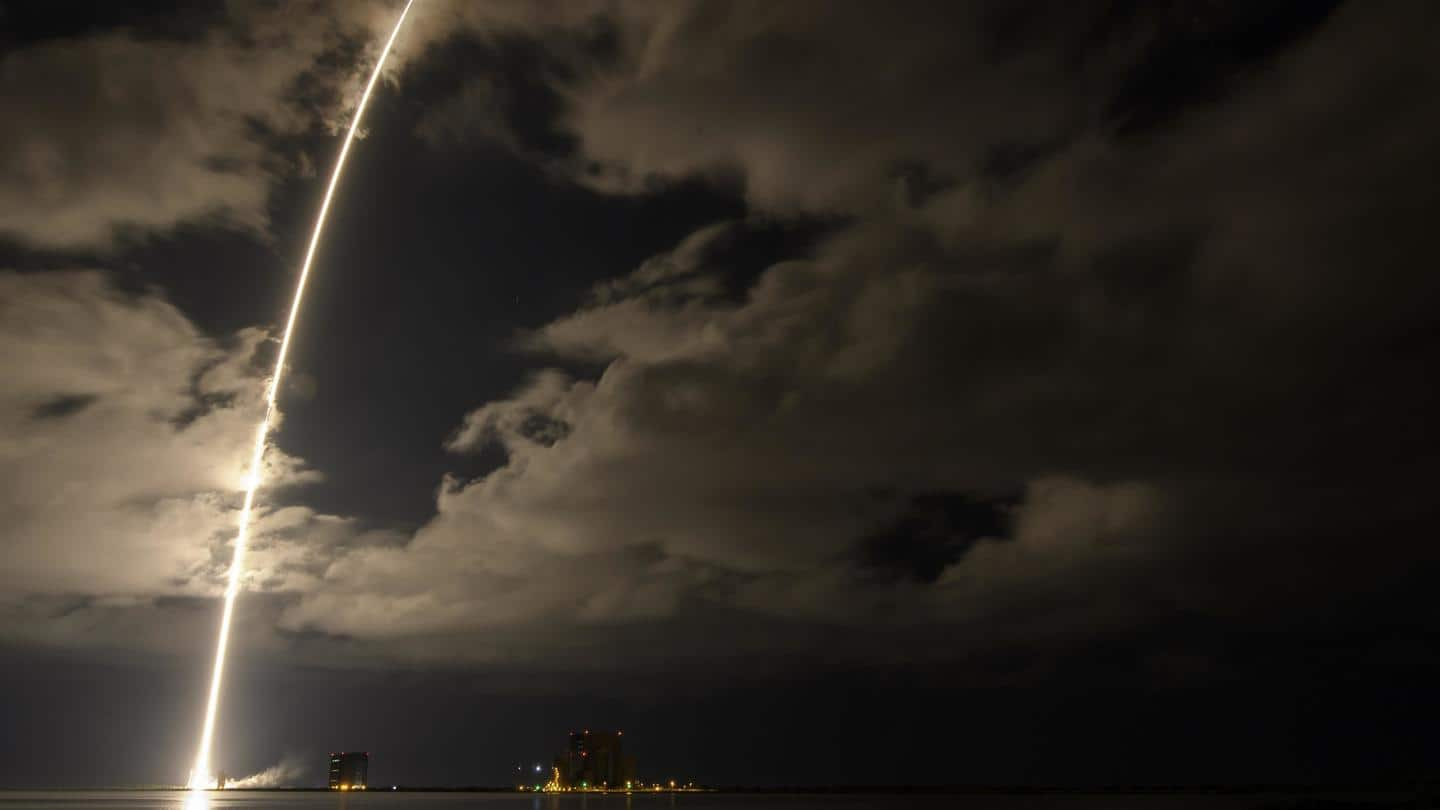
NASA's Lucy space probe blasts off to explore asteroids
What's the story
American space agency NASA launched the Lucy Mission space probe strapped to a United Launch Alliance Atlas V rocket from Launch Complex 41 at Cape Canaveral Space Force Station in Florida on October 16.
Lucy will be the first spacecraft to study Jupiter's Trojan asteroids and hopefully revolutionize the study of planetary origins and the formation of the solar system.
Here are more details.
Origins
The space probe launched successfully on Saturday
Notably, Lucy has been named after the fossilized human ancestor whose skeleton helped understand the evolution of humankind. The spacecraft blasted off at 5:34 am EDT (3:04 PM IST) Saturday and will be operational for at least 12 years.
An hour after launch, Lucy separated from the second stage of the booster rocket and deployed two solar arrays, each spanning 7.3 meters wide.
Mission objective
Lucy will study Trojan asteroid clusters near Jupiter
NASA said that the one-of-a-kind Lucy mission will use a space probe to explore two swarms of Trojan asteroids orbiting our Sun with Jupiter.
Scientists believe the asteroids are remnants of material that formed giant planets and that studying them could unravel secrets of our solar system's evolution.
Lucy's destination is near two gravitationally stable locations (called Lagrange points) near Jupiter.
Flight plan
Lucy will encounter seven Trojan asteroids between 2027 and 2033
The space probe will slingshot around the Earth thrice to accelerate itself. The first pass is slated for 2022 and will send Lucy hurtling beyond Mars's orbit. It will return for the second gravity assist in 2024, setting it on a trajectory for the Donaldjohnson asteroid.
After surveilling the asteroids ahead of Jupiter, it will return toward Earth for the third boost in 2031.
String of firsts
Can't wait to see what mysteries Lucy uncovers: Bill Nelson
Lucy would be the first spacecraft to return to Earth's vicinity from the outer solar system. It will also observe more asteroids on its journey than any other probe before it.
NASA administrator Bill Nelson said, "Lucy embodies NASA's enduring quest to push out into the cosmos for the sake of exploration and science, to better understand the universe and our place within it."